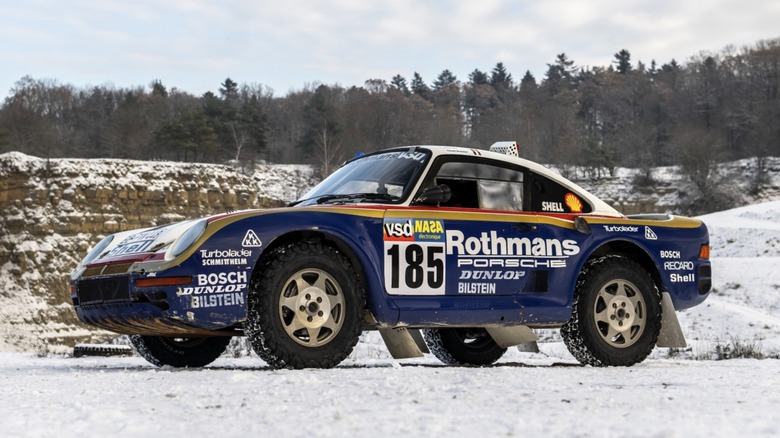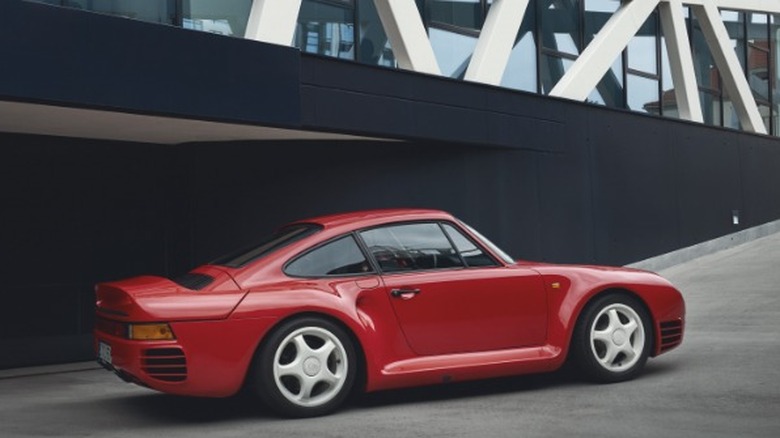The Legendary Porsche That Broke Records And Raised The Bar
Porsche has become a household name when it comes to sports cars and supercars, and not for no reason. The German automaker has a long, rich history of producing classy vehicles that are a joy to drive, and dependable to boot. In recent years, Porsche has produced some of the fastest vehicles on the road, some of which introduced innovative technology and changed the course of Porsche's future for good.
Porsche uses halo vehicles, like the 918 Spyder, to develop and introduce new technologies to its more consumer-facing vehicles, like the impressively efficient regenerative braking on the Taycan EV that recuperates 290 kilowatts of energy, according to Porsche. Compare this 290 kW to the competition, and it's easy to see how developing high-end platforms can lead to innovation.
Long before the hybrid 918 Spyder ushered in Porsche's electric revolution, though, the Porsche 959 rocketed the turbo-charged flat-six motor into rally stardom, and convinced Porsche that AWD sports cars were the way forward.
The 450 HP Porsche 959 was the world's fastest production car in 1986
The Porsche 959 that launched in 1987 was originally conceptualized as a Group B rally car based on the 956 and 962 platforms. It was powered by a sequential, twin-turbocharged 2849 cc flat-six engine that produced 450 HP. When it was launched, the 959 was the fastest production vehicle on the road, and is still very respectable, almost 50 years later. The 959 handled 0-60 mph acceleration deftly in just 3.7 seconds, and topped out at a blistering (at the time) 197 mph.
Due to its rally origins, the 959 featured an all-wheel drive system that sent 80% of the power to the rear wheels, active suspension with automatic ride height adjustment, and a revolutionary tire pressure monitoring system. Car and Driver reviewed the Porsche 959 in 1987, saying "The Porsche 959 can accomplish almost any automotive mission so well that to call it perfect is the mildest of overstatements."
Exceedingly high praise, but possibly to be expected from a car that cost $225,000 in 1987 — a price that's skyrocketed thanks to the scant 262-unit production run, and an almost 40-year vintage.
The 959 left it's mark on Porsche's future, winning two Paris-Dakar rallies: one in 1984 with a pre-production unit, and another in 1986, coming in first and second place, respectively. It also paved the way for twin-turbocharged, and all-wheel-drive sports cars, which has become the norm for many sports cars and supercars these days.

